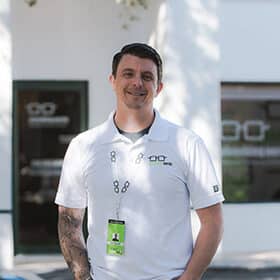Florida is known for having some of the hardest water in the country. Here in the Fort Myers area, it tends to be softer than in the rest of the state, but Floridians elsewhere have to deal with a high mineral content in their groundwater.
Hard water isn’t a major problem and it’s not dangerous to your health, but it can be hard on your laundry, hair, and skin. If you have hard water in your area, you should consider installing a water softener to treat it.
What is hard water?
Water is considered hard when it has a high concentration of minerals. In southwest Florida, we tend to have extra sodium, calcium, and magnesium. The effect of this, as you’ve probably noticed, is that our water has a harsh taste and sometimes a sulfur-like smell. If you have noticed your hair seems lifeless, dull, or even has a little orange tint to it, the hard water in your home may be the cause. Many people choose not to drink water straight from the tap and will either run it through a water filter or drink bottled water instead.
The other issue is that soap doesn’t dissolve as easily in hard water, leading to unsightly soap scum on your tiles and sinks. You may also notice mineral deposits on your fixtures, and your clothing fabrics might deteriorate faster. Those mineral deposits also build up inside the pipes, potentially leading to blockages.
Water softeners neutralize the minerals
One solution to the hard water problem is to install a water softener. These devices are hooked right into your plumbing system to treat your water before it comes through the pipes, stopping mineral buildup before it even starts.
The way it works is through a process called ion exchange. You may remember from your high school chemistry class that atoms carry a positive or negative charge. The atoms that makeup calcium and magnesium, the minerals in hard water, carry a positive charge. A water softener has a mineral tank that is filled with resin beads that are designed to carry a negative charge. The softener works by flushing a brine solution through that mineral tank so that the ions from the minerals are transferred to the resin beads.
This might sound complicated, but all you have to do to keep this process going is add salt to the water softener! The machine will do all the rest. Some companies provide water softener maintenance so you don’t have to do a single thing.
Is a water softener worth the expense?
The big question is whether the benefits of softening your water make up for the expense of buying and installing one. It depends on how hard your water is and how damaging it is to your laundry and plumbing fixtures. If you’re finding that the color of your clothing is becoming dull or stained with rust or if you are tired of using harsh chemicals like Iron Out to clean rust stains out of your faucets, toilets, and tubs, a water softener might be a good choice.
Once it’s installed, maintaining it is a breeze. All that’s required is to replenish the salt in the brine tank when it runs low. Choose high-quality salt to avoid problems such as bridging (when the salt hardens into a bridge between the brine tank and the mineral tank) and mushing (when the salt congeals at the bottom of the brine tank). It’s also a good idea to run a water softener cleaner through the mineral tank every few months to keep it running at peak performance.
The Plumbing, Cooling & Electrical Nerds can help you deal with hard water
Are you thinking about installing a water softener? Call Plumbing, Cooling & Electrical Nerds at (239) 215-3330 or send us a message through our website. We can evaluate the water in your home and then install and calibrate a water softener to solve your hard water problems.
